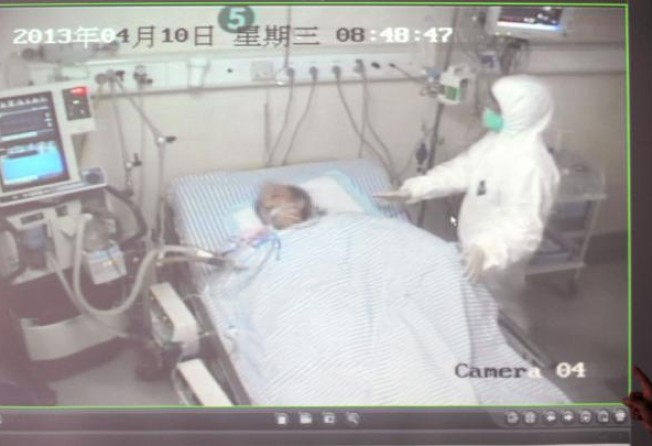Bird flu cure claim sparks rush for herbal root
Experts say advice is irresponsible as there is no evidence herb is effective against strain

Amid growing panic over the new strain of bird flu, some mainland officials have prescribed a surprising solution: hot brews of a root called ban lan gen.
With more cities closing their poultry markets, US scientists rushing to produce a vaccine and the death toll reaching nine as of yesterday, the herb has flown off pharmacy shelves during the past week. Many stores from Guangzhou to Shanghai are sold out, and prices have shot up.
The suggestion from several provincial authorities that people turn to the herb has garnered ridicule online and sparked debate among the mainland's scientific community.
It has also generated some reflection about the tendency towards panic buying of perceived cures or remedies in the face of threats to health.
The latest run began with a public advisory issued by Jiangsu province, where most cases of the new H7N9 strain have appeared. The memo urged experts to "explore and develop the role of Chinese medicine" in treating the new bird flu.
It suggested a list of herbs for treating infected patients, including ginseng, bamboo, liquorice and powder made from bear bile.
But what surprised most people was the assertion - unsupported by scientific evidence - that ban lan gen could prevent infection in the first place.
Ban lan gen has been a particular favourite for the mainland's panic buyers. It caught public attention during the 2003 epidemic of severe acute respiratory syndrome, then resurfaced during the 2009 H1N1 swine flu pandemic as well as previous H5N1 avian flu outbreaks.
Derived from the root of the flowering plant woad, ban lan gen is also widely used to combat the common cold.
In traditional Chinese medicine, which focuses on balancing yin and yang - hot and cold - in the body, ban lan gen is valued for its "clear heat", said Yang Liteng of Southern Medical University in Guangzhou.
"In the first 24 hours of the common cold, ban lan gen can restrain the virus and is helpful," Yang said. But he said the Jiangsu advisory was irresponsible because "there is no scientific evidence showing that it is helpful" for fighting H7N9.
For the most part, central health authorities have avoided weighing in on the ban lan gen debate. The World Health Organisation has been similarly diplomatic, recommending a type of anti-influenza drug.
"We do not have enough evidence to comment on the efficacy of traditional medicines, although we know there have been reports of their efficacy," WHO spokesman Gregory Hartl said.
View H7N9 map in a larger map
Click on each balloon for more information on individual patients infected with the avian flu virus: blue, patients infected with the H7N9 virus under treatment; red, those infected with H7N9 who have died; and pink, those infect with the H1N1 avian flu virus.